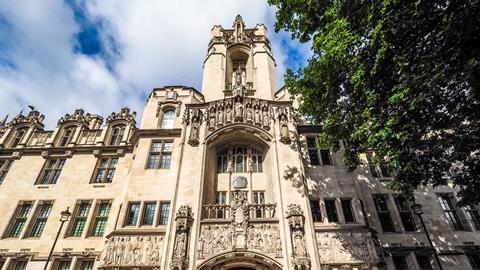A Supreme Court judgment centred on the construction of section 423 of the Insolvency Act 1986, which provides remedies to creditors where a debtor takes steps to defeat or prejudice their claims, ‘should be welcomed by all creditors’, solicitors say.
In El-Husseiny and another v Invest Bank PSC, Lady Rose and Lord Richards, with whom Lord Hodge, Lord Hamblen and Lord Stephens agreed, dismissed the appeal.
The judges found a ‘straightforward’ reading of section 423(1) showed that a transaction within the section could extend to one in which the debtor enters into an arrangement in which a company owned by the debtor transfers a valuable asset for no consideration or at an undervalue.
The case followed proceedings to enforce judgments obtained in Abu Dhabi by Invest Bank PSC against Ahmad El-Husseini for AED 96 million (around £20m). The bank identified assets, including houses in central London or companies owning those houses, in the UK against which it wished to enforce the judgments. The bank alleged El-Husseini had arranged for the assets to be transferred to other people to ‘put them beyond the reach of the bank and its judgment debt’ or to reduce the value of the companies which owned the properties. The bank sought relief under section 423.
The judgment said El-Husseini’s case involves ‘a significant limitation on the operation of the provision which, if it were intended, one would expect to see clearly spelled out in the wording of the section’.
It added: ‘Their construction requires important words to be read into the section because those words are simply not there.’
Read more
Referring to Invest Bank’s reading of the section as not being restricted to dealing with the debtor’s own property, the judgment said it was ‘no more than a natural reading of section 423(1) in context’.
The judgment added: ‘It does not involve an expansive reading, whereas the appellants’ [El-Husseiny] case involves reading exclusionary words into the section.’
Dismissing the appeal, the judges said: ‘We are not persuaded by any of the submissions made by the appellants that the straightforward reading of section 423(1) adopted by the courts below is wrong.
‘On the contrary, we consider that both the language of section 423(1) and the purpose of the section point clearly to the conclusion that a “transaction” within section 423(1) is not confined to a dealing with an asset owned by the debtor but extends to the type of transaction in this case, whereby the debtor enters into an arrangement under which a company owned by him or her transfers a valuable asset for no consideration or at an undervalue.’
Simon Fawell, partner at Signature Litigation, said: ‘This is a welcome confirmation that s423 of the Insolvency Act 1986 has a wide scope and, in particular, that there is no significant gap in the legislation that would allow debtors to hold assets through corporate vehicles and transfer them for little or no value to avoid their obligations.
‘The Supreme Court’s decision should be welcomed by all creditors, particularly as it puts paid to an argument that would have given recalcitrant debtors an obvious route to avoid their obligations.’
This article is now closed for comment.




























3 Readers' comments